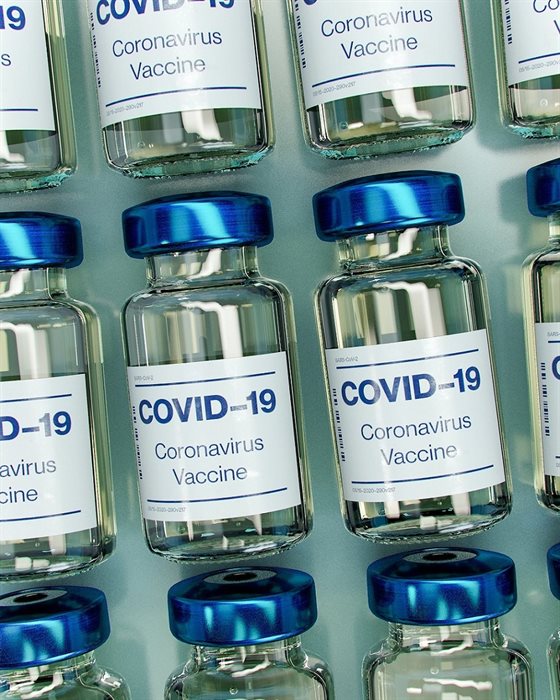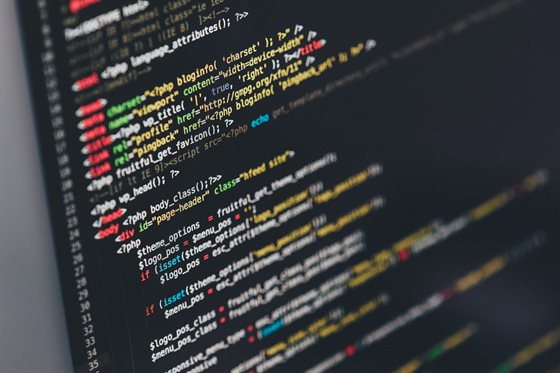Artificial Intelligence (AI) could help better determine who should receive the Covid-19 vaccine first, according to researchers at De Montfort University Leicester (DMU).
Experts from the Institute of AI and RiSE (Research in Societal Enhancement) group at DMU say that probability modelling (i.e. determining how likely something is) can effectively inform AI systems to generate priority lists, thus supporting experts in speeding-up and simplifying decision making.

Photo by Daniel Schludi on Unsplash
“The availability of approved vaccines has been lauded by many as a ‘game-changer’ in the ongoing, global fight against the Covid-19 pandemic and inevitably we have now found ourselves in the position of prioritising who gets the vaccine first, given that the current demand far outweighs current supply,” explained Dr Raymond Moodley, a visiting researcher at DMU’s Institute of AI.
The UK has been a leader in the vaccine roll-out, having been the first to approve and use both the Pfizer/BioNTech and the Oxford/AstraZeneca vaccines.
Decisions regarding vaccine prioritisation were left to the UK’s Joint Committee on Vaccination and Immunisation (JCVI) who are generally tasked with providing the government with guidance on immunisation.
“Generating these prioritisation groups has been a complex task requiring substantial time and effort by various experts including clinicians, mathematicians and data analysts, as well as government policy advisors. But we think it is possible to achieve a similar outcome using a simplified approach,” continued Dr Moodley.
“Having a simplified approach not only saves time and effort, but usually makes these approaches more universal, so they would be applicable to other scenarios beyond Covid-19. Most importantly, a simplified approach makes it more accessible to countries and organisations that do not have access to the expertise and data we have in the UK.”
Dr Moodley, along with his colleagues Professor Francisco Chiclana, Dr Fabio Caraffini, and Dr Mario Gongora, has extensive experience in developing AI models that identify patterns using real-time data and makes predictions and recommendations.
RELATED NEWS
Research shows 25% of Britain could have avoided first lockdown
Researchers use artificial intelligence to improve school attendance
AI research to create a regional 'data powerhouse'
In 2019, the researchers developed a simple, yet effective decision-making ‘market target’ (mt) model that could be used across a broad range of sectors, including in retail, education, crime prevention and healthcare.
The model is based on probability theory which considers the likelihood of an event occurring. For example, if mortality was the primary criteria when prioritising who gets the vaccine, it would be based on the probability of someone or a group of people dying once infected with Covid-19.
“Simple, probabilistic modelling can be highly effective, especially on a large scale where trends are less likely to be skewed by individual cases,” said Professor Chiclana. “Public health initiatives, including mass immunisation campaigns, are natural candidates given that the modelling is based on millions of individual data points.”

Photo by Ilya Pavlov on Unsplash
The team say that their model could be hugely beneficial to governments and organisations that have less sophisticated data systems in place, as the model is publicly available and has a relatively low data requirement.
“For countries where vaccines are yet to be made available, there are simple, publicly available, AI-based modelling approaches that can be adopted to slow the spread, including our AI model which uses a combination of protection cordons and lockdowns,” said Dr Caraffini.
“Deciding vaccine priority has been no mean feat for countries that have highly developed nationalised health services like the UK and so is likely to be equally, if not more, challenging for countries that have a blended provision of both private and public healthcare.”
The experts say that left unregulated, countries with a blended provision could see an exacerbation of Covid-induced economic divide.
“Globally, there is already stark evidence that demonstrates the impact of the economic divide caused by Covid-19,” explained Dr Gongora. “Left unregulated, the wealthy – the majority of whom will be on private healthcare systems – will receive the vaccine before the poor, who are more likely to use public healthcare.
“As a result this could be yet another area in which Covid-19 has had a greater negative impact on the poor compared to those that are well-off.”
The broad strategic decision in the UK, led by the JCVI, was deciding between prioritising transmission prevention or preventing deaths. In the end, they chose to prioritise the latter, as well as protecting the NHS and social care system.
The JCVI outlined nine priority groups, which represented 99% of preventable mortality from Covid-19 and included all adults over 50 years old (starting with the oldest groups first), frontline health and social care workers as well as clinically vulnerable adults.
The rationale for adopting this approach was that preventing transmission in the general population with a vaccine was initially going to be difficult, given that a large proportion of those that transmit the virus generally suffer mild symptoms and fully recover without the need for hospitalisation, while those that are vulnerable to Covid-19 may not be transmitters (e.g. an elderly person living alone) but could die or require days, if not weeks and months, of intensive care once infected.
“Decision making within AI is an important field and remains a foundational area of research within our team” added Dr Moodley.
“By using AI to determine priority, each country and organisation can be certain that the order in which they roll out the vaccine is reflective of the actual probability of their people dying and/or being infected.”
Posted on Tuesday 12 January 2021